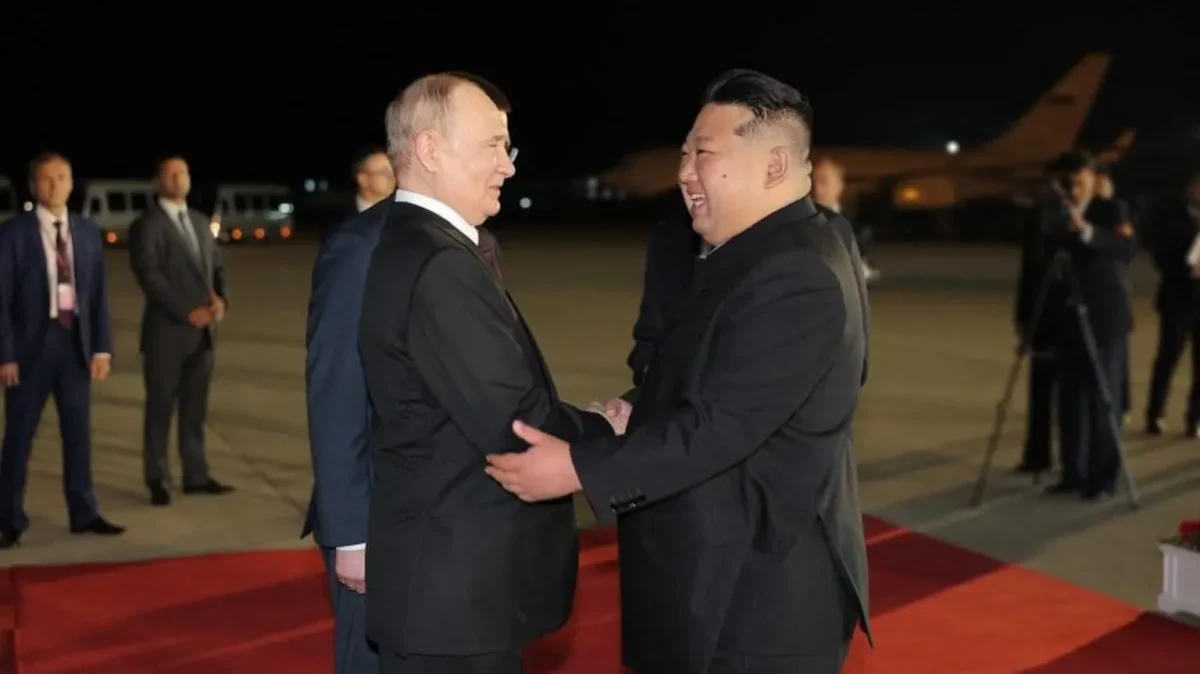
BBC
Since the onset of Russia’s full-scale invasion of Ukraine in 2022, foreign involvement
has been consistent with nations providing financial support, military services and hu-
manitarian aid towards those in Ukraine. However, while some countries have very openly
aligned with the Western perspective, others have taken a more nuanced stand, opposing
the war while continuing to do business with Russia. The most recent involvement in the
war has come from North Korea, which has been deploying troops in the Kursk region of
Russia to strengthen the military.
For the first time in 24 years, Russian President Putin visited North Korea in June 2024,
where he and North Korean leader Kim Jong Un signed an agreement that pledges mutual
aid if either country faces “aggression”. The open-ended agreement may be an attempt
to quell Western aid to Ukraine through intimidation, as reports have indicated Russia
is considering changing the conditions needed for their nuclear weapons to be used in
conflict, while North Korea is expanding and testing their nuclear arsenal at an unprece-
dented rate.
The history of Russo-North Korean relations dates back to the Cold War. The erstwhile
Soviet Union’s (USSR) objective was to expand its communist influence within Asia, and
North Korea was utilized as a plant to establish a communist ally. In the time post Japan’s
defeat in WW2, Korea was split into North and South, with the USSR gaining control of
North Korea. In 1948, the USSR aided the formation of the Democratic People’s Republic
of Korea (North Korea) which prompted its rise in nationalism through military aid (The
Korean War, 1950) and political support.
The strengthening of political relationships between North Korea and Russia has been
identified as a plausible security threat by the US and its allies; it is also a contributing
factor to the tensions in the Korean Peninsula. There is a fear that this alliance may fur-
ther ignite the conflict in Ukraine.
A doorstep statement by NATO Secretary General Mark Rutte following the North Atlan-
tic Council briefing on the DPRK’s troop deployment to Russia states that “Pyongyang
has already supplied Russia with millions of rounds of ammunition and ballistic missiles
that are fuelling a major conflict in the heart of Europe and undermining global peace and
security. This underlines the importance of democracies standing together”. NATO Allies
continue to support a free Ukraine, stating that “Ukraine’s security is our security”, and
are actively discussing and closely monitoring this situation among Indo-Pacific partners.
Moscow has, on the other hand, not explicitly denied or confirmed the presence of North
Korean troops within its borders. Dismissing the concerns, President Putin stated that it
was up to Russia to determine whether it would deploy North Korean forces and noted
that Russia remained committed to the treaty with North Korea and to developing rela-
tions as neighboring states, and addressed it as something that shouldn’t be construed
as a concern.
North Korea’s involvement in aiding Russia could pose a variety of benefits for the North
Korean economy and political relations in return, such as funding for nuclear weapons
and military programs. However, this intervention could lengthen the battle and drive it
further from a resolution, potentially leading to long-term consequences such as instabi-
lity and tensions between the involved countries.